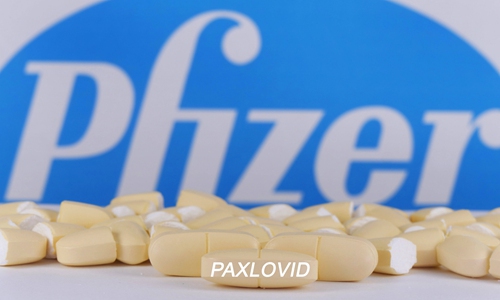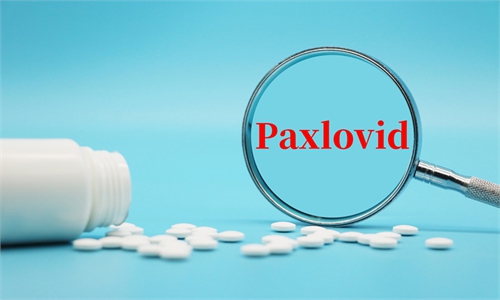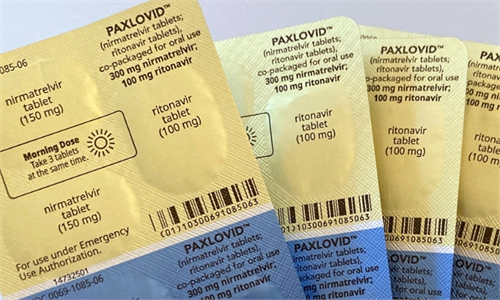
Medical workers are busy at the emergency department of Beijing Chaoyang Hospital of Capital Medical University in Beijing, Dec 27, 2022. Photo:China News Service
As sales of India-made anti-COVID generic drugs in China through illegal channels reportedly becomes more common, a Chinese expert on Tuesday warned that buying and using such drugs involve risks, adding that China has more ways to expand the category of available drugs.
A number of Indian pharmaceutical companies are authorized to make generic version of branded drugs such as Paxlovid without having to pay for the patent under the UN-backed Medicines Patent Pool scheme. But making and sales of such generic drugs are illegal in China.
However, despite the illegality, an increasing number of people have still managed to buy the drugs via so-called grey channels in the Chinese mainland.
In India, Chinese people familiar with how the generic drugs end up in China say there has been a rise in the sales.
"Two weeks ago these drugs are badly sought after, now the demand has eased a bit, but still substantial," a former executive at a Chinese company in India told the Global Times on Tuesday.
A sales representative at an Indian pharmaceutical company told the Global Times on Tuesday that "a lot of people from China are buying but the price has dropped down in recent days."
Now the generic version of MSD's Molnupiravir is priced at 850 yuan ($125.49) per single course treatment, down from 1,500 yuan a while ago, the person said.
However, as the talks of India-made COVID generic drugs trend on Chinese social media platforms, some Chinese bloggers and industry insiders have warned over the risk of fake drugs.
Yin Ye, a top executive with leading Chinese gene company BGI Group, posted on his WeChat account on December 31 that one sample, whose package indicates it is a Primovir made by India's Astrica, has no Nirmatrelvir, the key pharmaceutical ingredient for the generic drug to perform the function of Paxlovid upon laboratory examination at BGI.
The pills sourced by Yin's friends from India, instead, contain Oseltamivir, an antiviral drug used to treat flu viruses, Yin wrote.
Li Tianquan, co-founder of domestic healthcare big data platform yaozh.com, told the Global Times on Monday that his contacts in the pharmaceutical circle reported similar phenomenon.
Li said because generic anti-coronavirus drugs are not compliant with laws and regulations in China and they belong to prescription drugs, he urged the public not to take the risk. He said that the Chinese government can still increase the availability of Paxlovid in China even after the negotiation has failed.
Paxlovid is currently covered by China's broad healthcare insurance scheme under temporary measures until the end of March but failing to enter the national medical insurance scheme mean the drug is only available on the private market.
Under certain emergency response scheme, the government can procure Paxlovid in a wholesale fashion, which would reduce the price of the drug, Li said.
To balance the sole status of Paxlovid as the "more effective anti-COVID drug", Li said China will introduce more entrants, such as Japan-developed COVID drug Xocova.
Pfizer signed a deal in August for Chinese drug maker Zhejiang Huahai to produce Paxlovid in mainland China solely for local patients.
Pfizer Inc Chief Executive Albert Bourla said on Monday at J.P. Morgan's healthcare conference in San Francisco that the company had shipped thousands of courses of the treatment in 2022 to China and in the past couple of weeks, increased that to millions, according to Reuters.
Pfizer told the Global Times in a statement that the company and Huahai are actively pushing forward cooperation over localized production of the drug.




